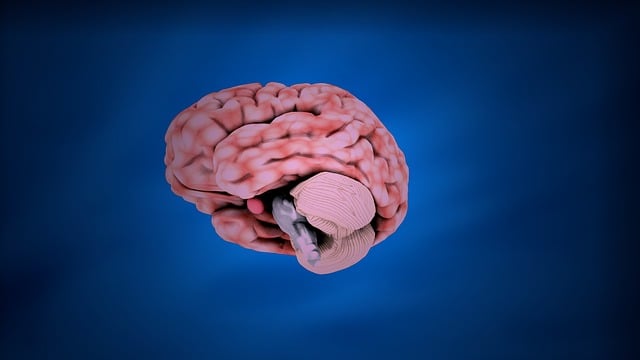Community outreach programs tailored to address Lone Tree Obsessive Compulsive Disorder (OCD) and other mental health challenges are effective in fostering recovery and well-being. These initiatives include specialized youth programs, public awareness campaigns, accessible therapy materials, partnership collaborations with local organizations, and evidence-based practices that empower individuals to manage their OCD proactively. By focusing on specific demographics, conflict resolution, cultural sensitivity, and measurable success, Lone Tree Obsessive Compulsive Disorder Therapy (LTOCDT) can significantly impact diverse communities.
Community outreach programs play a vital role in addressing mental health concerns, especially in areas like Lone Tree where access to specialized therapy can be limited. This article explores strategies for implementing successful initiatives targeting individuals with Obsessive Compulsive Disorder (OCD). We’ll delve into identifying at-risk groups, designing engaging materials, forming partnerships, and measuring the impact of these programs, focusing on Lone Tree OCD Therapy as a community-based solution.
- Understanding Community Outreach for Mental Health Support
- Identifying Target Groups for Lone Tree OCD Therapy Programs
- Designing Effective Outreach Strategies and Materials
- Building Partnerships with Local Organizations
- Measuring Success and Sustaining Long-Term Impact
Understanding Community Outreach for Mental Health Support

Community outreach programs play a pivotal role in addressing mental health challenges within diverse populations. Understanding community needs and tailoring support accordingly is essential for initiatives like Lone Tree Obsessive Compulsive Disorder (OCD) Therapy. This approach ensures that resources reach those most affected, fostering an environment of care and recovery.
Mental Wellness Coaching Programs Development and Mental Health Education Programs Design are integral components of these outreach efforts. By imparting knowledge and skills related to mental wellness, these programs empower individuals to take charge of their mental health. Incorporating Mind Over Matter principles can significantly enhance this process, encouraging resilience and self-care practices that promote overall well-being.
Identifying Target Groups for Lone Tree OCD Therapy Programs

Identifying target groups is a crucial step in implementing effective Lone Tree Obsessive Compulsive Disorder (OCD) therapy programs. These initiatives aim to reach individuals and communities most impacted by OCD, ensuring tailored support and improved mental wellness. By focusing on specific demographics, therapists and community organizers can develop targeted interventions that address unique challenges. For instance, school-aged children and adolescents often face heightened anxiety and may benefit from specialized youth programs that incorporate playful learning elements to enhance self-esteem improvement.
Public awareness campaigns play a pivotal role in this process. Educating the public about OCD symptoms and breaking down associated stigma enables early identification and intervention. These campaigns can be tailored to diverse communities, considering cultural nuances and language barriers. Through creative strategies, such as social media engagement and community events, individuals can gain access to valuable resources, fostering an environment of support and understanding for those navigating OCD and promoting overall mental health.
Designing Effective Outreach Strategies and Materials

Designing effective outreach strategies is key to engaging communities and promoting mental health services. Organizations like Lone Tree Obsessive Compulsive Disorder Therapy (LTOCDT) should focus on creating accessible materials that resonate with diverse audiences. Utilizing Mind Over Matter principles, the content should be tailored to address common concerns and misconceptions about therapy while highlighting the benefits of early intervention. Visual aids, testimonials, and simple language can make complex topics more digestible, fostering a sense of trust and openness.
The materials should also incorporate Conflict Resolution Techniques and Empathy Building Strategies to encourage honest communication and understanding. By presenting these strategies in an engaging format, LTOCDT can reduce barriers to care, especially for underserved populations. It’s crucial to involve community leaders and stakeholders in the design process to ensure cultural sensitivity and relevance, ultimately leading to a more inclusive outreach campaign.
Building Partnerships with Local Organizations

Building partnerships with local organizations is a pivotal strategy for successful community outreach programs. By collaborating with entities such as schools, churches, and community centers, Lone Tree Obsessive Compulsive Disorder (OCD) Therapy can expand its reach and create a more comprehensive support network. These partnerships allow for shared resources, expertise, and infrastructure, enhancing the effectiveness of mental health initiatives. For instance, combining OCD therapy sessions with existing youth programs can increase accessibility and encourage positive thinking among at-risk populations.
Additionally, these collaborations facilitate a risk assessment for mental health professionals, providing an opportunity to identify potential challenges and implement trauma support services tailored to the community’s needs. By working together, organizations can better address the complex landscape of mental health issues, ensuring that everyone has access to quality care. This collaborative approach not only strengthens local support systems but also fosters a sense of collective responsibility for community wellness.
Measuring Success and Sustaining Long-Term Impact

Measuring the success of community outreach programs is paramount to understanding their true impact and ensuring sustainability. In the context of addressing mental health challenges like Lone Tree Obsessive Compulsive Disorder (OCD), assessing progress involves tracking key indicators such as participant engagement, improvements in symptoms, and enhanced self-management skills. Tools like pre-post surveys, focus groups, and clinical evaluations can provide valuable insights into participants’ well-being before and after the program.
Sustaining long-term impact requires a multifaceted approach. By incorporating evidence-based practices such as Mood Management techniques, Self-Awareness Exercises, and Social Skills Training, community programs can empower individuals to continue their healing journey independently. Regular follow-up sessions, supportive networks, and accessible resources further ensure that participants maintain their progress and feel supported in the long run.
Community outreach programs play a pivotal role in expanding access to mental health support, particularly for niche populations like those affected by Lone Tree Obsessive Compulsive Disorder (OCD) therapy. By understanding target groups, designing engaging materials, fostering strategic partnerships, and measuring success, initiatives can effectively reach individuals in need. This holistic approach not only provides immediate assistance but also ensures long-term positive impacts on the community’s mental well-being.








